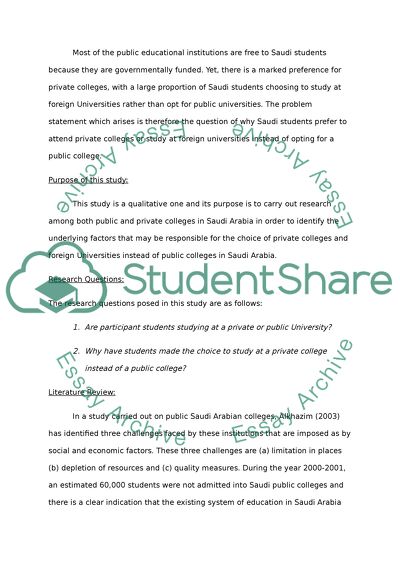Cite this document
(“Factors Effecting Students Selecting Private Colleges In Saudi Arabia Essay”, n.d.)
Retrieved de https://studentshare.org/education/1559225-factors-effecting-students-selecting-private-colleges-in-saudi-arabia
Retrieved de https://studentshare.org/education/1559225-factors-effecting-students-selecting-private-colleges-in-saudi-arabia
(Factors Effecting Students Selecting Private Colleges In Saudi Arabia Essay)
https://studentshare.org/education/1559225-factors-effecting-students-selecting-private-colleges-in-saudi-arabia.
https://studentshare.org/education/1559225-factors-effecting-students-selecting-private-colleges-in-saudi-arabia.
“Factors Effecting Students Selecting Private Colleges In Saudi Arabia Essay”, n.d. https://studentshare.org/education/1559225-factors-effecting-students-selecting-private-colleges-in-saudi-arabia.


